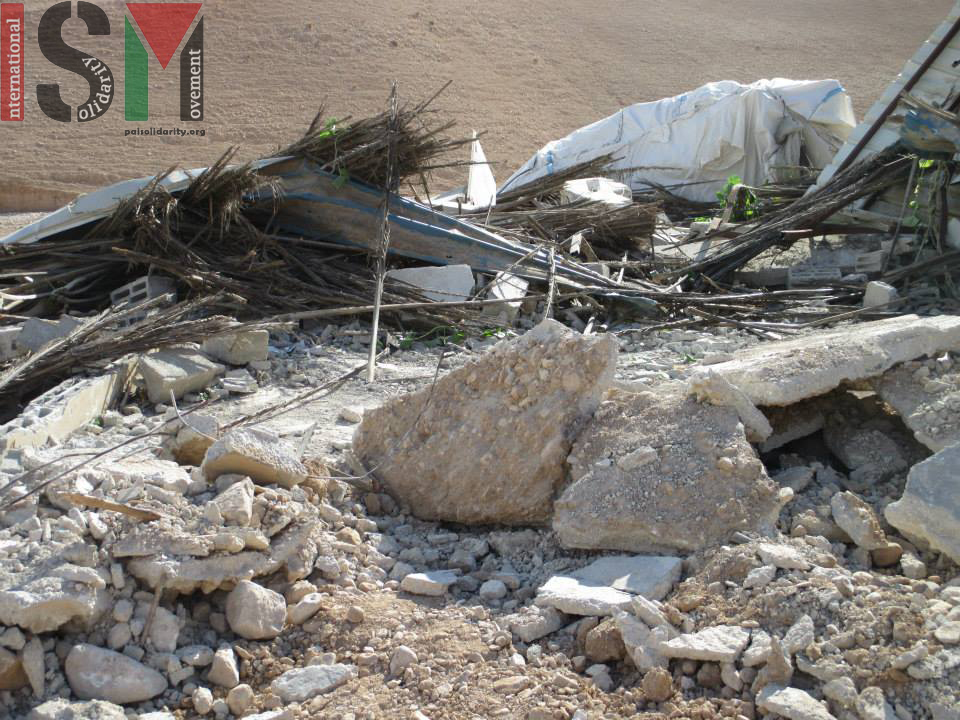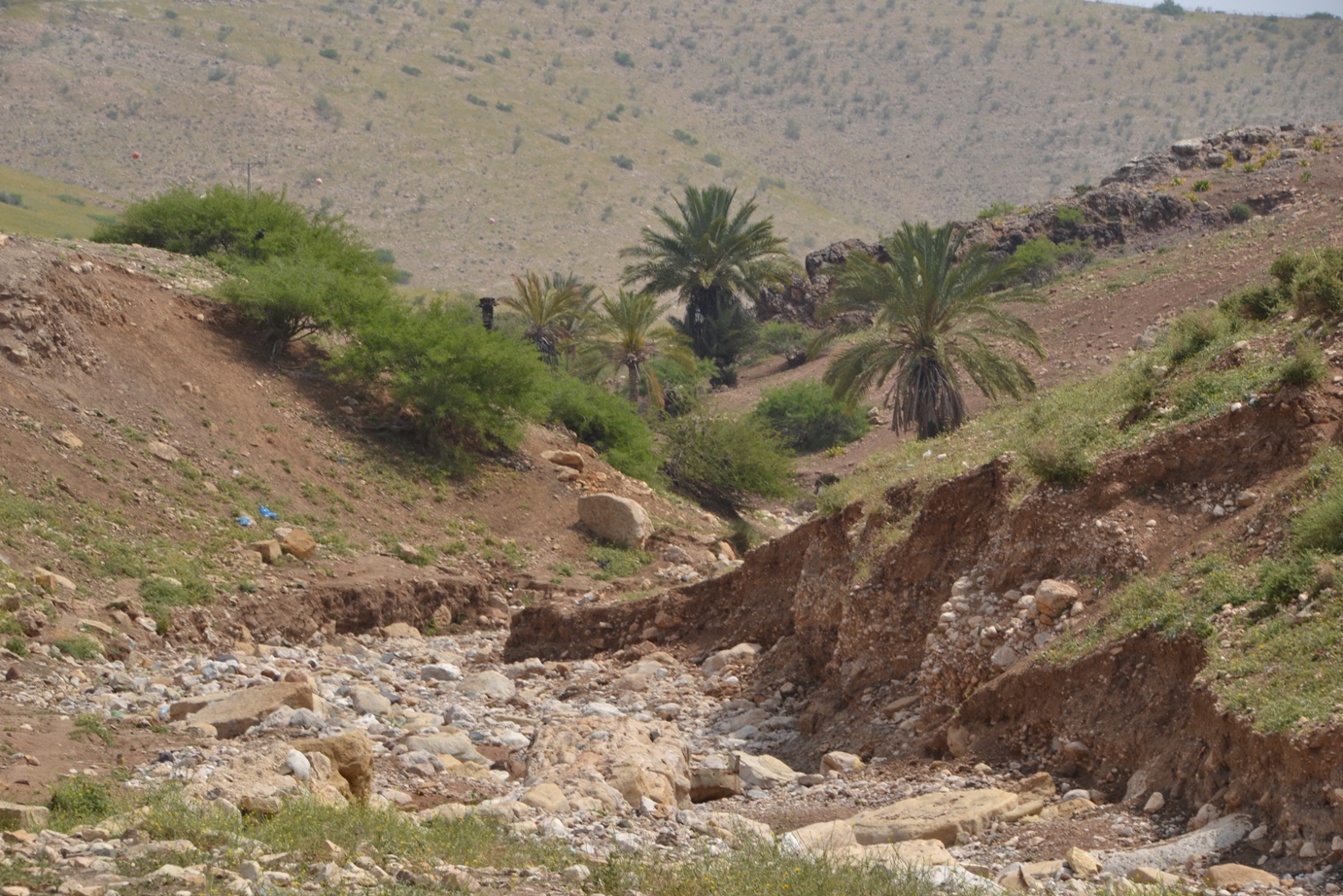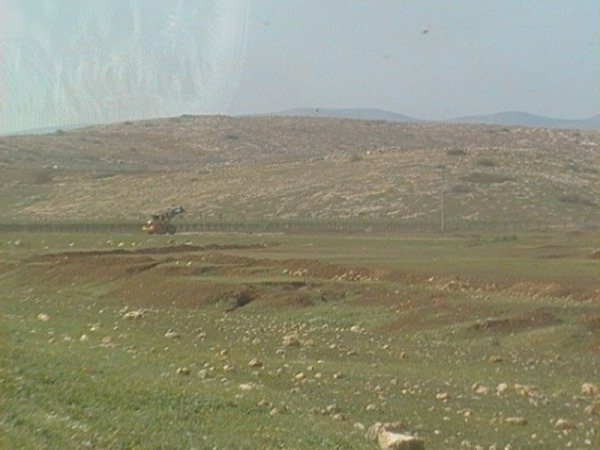Tag: Jordan Valley
-
Family home and five other structures demolished by Israeli military
21st October 2014 | International Solidarity Movement, Nablus team | Jordan Valley, Occupied Palestine On October 20th, the Israeli military destroyed six structures belonging to a family in the village of al Jiftlik, in the Jordan Valley. At approximately 6:00 am, Israeli soldiers destroyed the family home of Mohammed Mousa Mohammed Abohernam, as well as five other buildings,…
-
Harassment campaign continues in the Jordan Valley
13th April 2014 | International Solidarity Movement, Nablus Team | Al Maleh, Occupied Palestine The Israeli military oppression of Palestinians living in the Jordan Valley can take many forms, including the systematic confiscation of essential tools and materials, to physical punishment and arrest. The latest act of harassment by the Israeli army in the Jordan Valley…
-
Injustice in Al Maleh
17th March 2014 | International Solidarity Movement, Nablus Team | Jordan Valley, Occupied Palestine The Israeli occupation in Palestine can be seen in many different ways. In the Al Maleh area of the Jordan Valley (area C, which is under full Israeli military control) 450 Palestinian families, including 100 Bedouin families are spread through 13…



